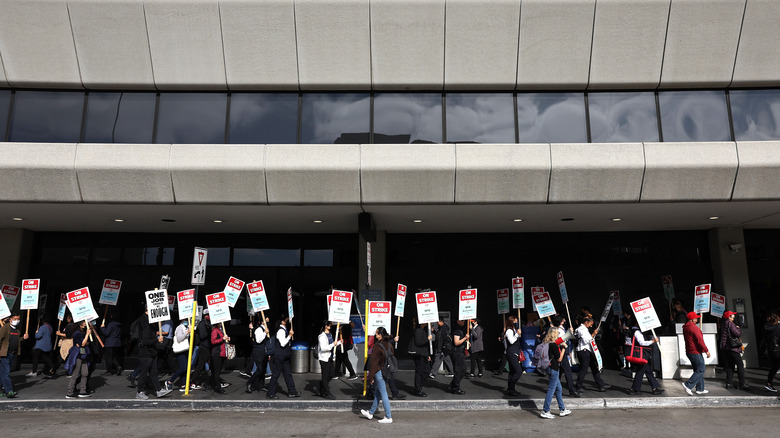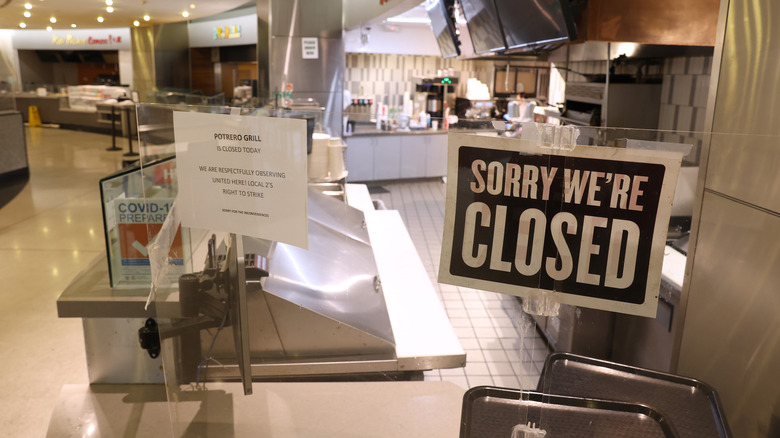San Francisco Airport Food Workers End Strike After 'Significant' Gains
Earlier this week, over 1,000 food workers at the San Francisco International Airport went on strike, causing the sudden closure of nearly all restaurants, bars, lounge areas, and coffee shops inside the airport, via SF Gate. In a statement via Twitter, the striking workers announced, "Most of us haven't had a raise in three years, and we're tired of working two or even three jobs just to survive. So we're fighting back." At an earlier picket line protest on August 18, the workers even chanted, "One job should be enough!" Before the strike, most food service workers at the San Francisco airport were making around $17.05 per hour, which is just over the city's minimum wage of $16.99, per CNN.
The dramatic strike effectively shuttered 84 eateries in the San Francisco Airport for three days, says Restaurant Business Online. For an airport like this one, that kind of closure is a massive deal. In 2021, over 24,000,000 passengers passed through San Francisco International Airport, and in 2019, it was a whopping 57,488,023 travelers.
Pay raise negotiations had been dragging on for nine months with reportedly no realistic end in sight (via SF Gate), so the employees tried out a different negotiation tactic — and it worked. Now, the San Francisco airport food workers have ended their strike after reportedly "significant" gains, per Restaurant Business Online.
A win for the airport food workers
A negotiating committee of 80 San Francisco Airport food service employees unanimously accepted the settlement they were offered, says Restaurant Business Online. But, since the deal has yet to be made official by the union chapter, the specific terms of the deal have yet to be released. What we do know, so far, is that the workers have secured health insurance that also extends to their families and an undisclosed pay raise.
Union activism like this has been revolutionizing the food service industry in recent years. Per the National Labor Relations Board, union elections have increased by 58% this year, and unfair labor charges increased by 16%. For instance, 238 Starbucks stores nationwide have unionized since December 2021, per CNBC. Last month, a Massachusetts Trader Joe's became the first to unionize, expressing eagerness via Twitter to "[sit] down at the negotiating table as equals with our employer."
While these victories are momentous, they are the beginning of a much larger conversation about workers' rights in the U.S. labor system. As Senator Bernie Sanders tweeted last month, "Our job is not only to grow the trade union movement in this country. We must also break down these archaic laws that make it so hard for workers to organize and so easy for an employer to refuse to negotiate."

